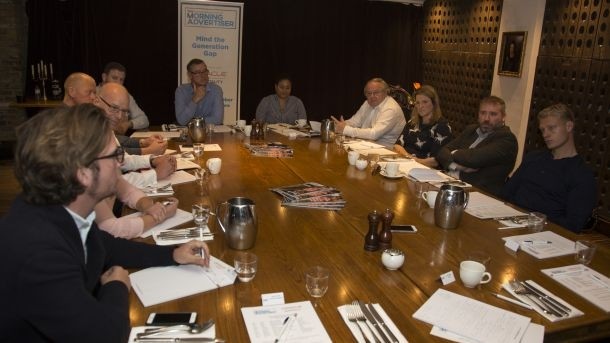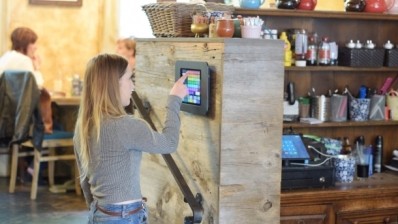Millennials
Millennials: attracting younger consumers with technology

Trade experts debated the trials and tribulations of Millennials and how the industry can adapt to attract more of the young adults through technology, when they met at the Jugged Hare pub in Barbican, London.
Social media was a popular subject at the roundtable with some offering help and advice on how to use it as a tool to enhance businesses and others sharing what has worked well for them.
Ken Ryan, director of London-based pub group Town Centre Inns, said: “We spend money on social media advertising but can never relate it to till turnover.”
City Pub Co digital marketing manager Kyle Gibson explained: “It is difficult to quantify footfall from online spends but I use conversion tracking.
“That is why we track impressions, so we are tracking actual bookings as they are more important to me. This is because you could be targeting a huge audience with something completely irrelevant or a very targeted audience of potential customers, which is much more important.
“Online bookings are easy to quantify and we drive traffic to our website to [attract] bookings.”
The industry leaders also discussed the pros and cons of promotional advertising on social media and the operations director of pub group Castle Rock Brewery, Vicki Saxby, outlined the success she had experienced with this.
“We have had very good results with the targeted posts on Facebook. I did it recently with a new pub opening that reached 250 people organically. I chucked £10 at it and the next morning, 17,500 people had seen it and we had a queue down the street when we opened the pub.”
Hannah Blackmore orchestrates the digital marketing for Town Centre Inns and gave her input on paid Facebook posts.
She said: “It can depend on what you are boosting. We have done one that was targeted at Millennials during Freshers’ Week because one of Ken’s sites is near a college.
“During that week, we did specific offers to boost trade. You can get data according to those who have clicked on the post, which can be helpful too.”
St Austell Brewery marketing and communications director Jeremy Mitchell explained that Facebook had worked for them as a result of sponsoring a local rugby club.
He said: “You can check who the fans of the rugby club are on Facebook, if they have mentioned it, and then reach out to them, which works really well for us.”
Pre-venue experience
The generation gap between customers is something that pubs have to adapt to, now more than ever because the closure rate of pubs around the country continues at a worrying level. This means operators need to be increasingly aware of how they can attract a younger clientele.
Millennials are now not only wanting to have a good time in pubs, but the expectations of the ‘pre-venue experience’ is putting extra pressure on the trade to up its game.
Gibson added: “I don’t see too much separation between the older customers and younger customers, but I am focused on driving customers through our online channels.
“I also see that everything online is to do with the pre-venue experience, such as looking at photos of the venue, making the booking and getting the menus, which doesn’t have anything to do with being in the pub itself.”
Brighton-based Indigo Pub Company operations director John Purchese agreed that pubs need to do more.
He said: “After the smoking ban, everything has gone against us and everything has had to get better, and that is what Millennials expect now – a better quality pub.”
Contactless payment was also a topic that got delegates talking. Amber Taverns regional manager Mick Beaver, whose estate is wet-led, maintained that such developments, where customers tap their cards over payment scanners, was one facility that could help to attract Millennials.
He said: “It has made a big difference to us. It isn’t leading edge and we aren’t looking at specific apps, but the older man is scared of contactless payments.
“He goes out with £20 in his pocket, spends it and goes home, whereas the younger guy doesn’t want to think about where the nearest cashpoint is.
“He wants to go out and have a drink and, with contactless, it is job done. We are slowly getting into that and it is working.”
Trying new things
Rob Paley from Be At One explained how the cocktail bar group had updated its drinks offer to customers based on current trends.
He said: “The Millennials now are obsessed with how they look. Everyone has got a six pack and everyone is following trainers rather than the lad culture of the ’90s, meaning our industry is almost contradictory to the health business.
“As a result, we are trying things like virtuous cocktails, which include spinach and kale along with a double shot of vodka.”
However, mobile payment apps received a mixed reaction from guests.
Charlie McVeigh, founder of pub chain Drafthouse, explained that his company had trialled a bar tab app and had real high hopes for it, but the feedback wasn’t entirely what he expected.
“I thought it was really clever and we thought it would be the solution to the problem of a busy Friday night, but staff didn’t like it.
“They didn’t want to do something new and have to explain it to customers when it was busy, and then nobody took it up anyway.”
Gibson advised that internal staff training was key to making new adaptations work. He added: “You need everyone engaged because if there is a customer struggling with something, staff need to know exactly how to solve that issue.”
Easing friction
Paul Hammond, UK sales director at Oracle, The Morning Advertiser’s partner for the event, urged operators to think about the friction of when a customer approaches the bar and how to impress them with the ability to integrate a promotion without a delay.
He explained: “When you need to go and produce something, that is friction.
“For example, [if you are] a customer standing at the bar and staff know who you are and you can redeem a voucher from your phone – that is fabulous.”
In order to create a ‘frictionless’ environment for customers, data gathering of the audience is a key place to start in order to personalise offers and target consumers, he claimed.
Blackmore said that one way of doing this would be through a pub’s Wi-Fi system.
She urged operators to capture a customer’s data on their Wi-Fi landing page, meaning they would have to enter their email address and other personal information about themselves before being able to log on to the Wi-Fi.
Beaver outlined the pub company’s unique way of data gathering: “Using the demographics from what people put on Facebook, we have just started plugging loyalty cards, which capture the data by [customers] filling in an application to get one.
“It allows customers to collect points via their card being swiped at the till and receive a 5% discount.”
Beaver added that the cards have a double benefit. He explained: “When the pub is closed, we put the prices up 5%, but we have already pre-loaded and issued all the loyalty cards to the existing customer base.
“This means those customers don’t see a price, but with new customers, or passing trade that we only get on a Friday or Saturday night, we get the benefit of the extra 5%.”
Survey
Are millennial customers important to your pub?
Yes
100%No
0%







